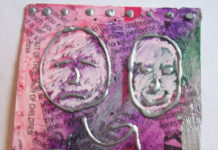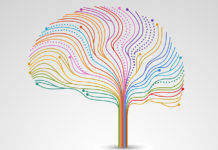Things Your Doctor Should Tell You About Antidepressants
The conventional wisdom is that antidepressant medications are effective and safe. However, the scientific literature shows that the conventional wisdom is flawed. While all prescription medications have side effects, antidepressant medications appear to do more harm than good as treatments for depression.
Stopping SSRI Antidepressants Can Cause Long, Intense Withdrawal Problems
In the first systematic review of withdrawal problems that patients experience when trying to get off SSRI antidepressant medications, researchers found that withdrawing from SSRIs was comparable to trying to quit addictive benzodiazepines.
How to Avoid Severe SSRI Withdrawal Symptoms?
After long-term use, most people are going to have serious symptoms when stopping SSRIs. Many people are going to have transient, mild to moderate difficulty and some are going to end up falling down the akathisia rabbit hole. That is a long, difficult drop.
Percentage of Americans on Antidepressants Nearly Doubles
From 1999 to 2012 the percentage of Americans on antidepressants increased from 6.8% to 13%, according to a report published this week by the...
Do Antidepressants Work? A People’s Review of the Evidence
After a meta-analysis of RCTs of antidepressants was published in Lancet, psychiatry stated that it proved that "antidepressants" work. However, effectiveness studies of real-world patients reveal the opposite: the medications increase the likelihood that patients will become chronically depressed, and disabled by the disorder.
Suicide in the Age of Prozac
During the past twenty years, the American Foundation for Suicide Prevention and American psychiatry have adopted a "medicalized" approach to preventing suicide, claiming that antidepressants are protective against suicide. Yet, the suicide rate in the United States has increased 30% since 2000, a time of rising usage of antidepressants. A review of studies of the effects of mental health treatment and antidepressants on suicide reveals why this medicalized approach has not only failed, but pushed suicide rates higher.
Playing the Odds: Antidepressant ‘Withdrawal’ and the Problem of Informed Consent
If I thought that it was possible, I would have opened a string of clinics all over the country to help get people off of antidepressants. Unfortunately, the problems that sometimes occur when people try to stop an SSRI antidepressant are much more severe and long-lasting than the medical profession acknowledges, and there is no antidote to these problems. The truth is, giving people information about taking antidepressants is like giving information to people who are enroute to a casino; they go because they hear that some people win (at least for a time), but the losers are the ones who ultimately pay for it all — and the odds are not in their favor.
Rigorous Study Finds Antidepressants Worsen Long-Term Outcomes
A new study conducted by Jeffrey Vittengl at Truman University has found that taking antidepressant medications resulted in more severe depression symptoms after nine years.
Part II: Michelle Starts Prozac and Sees the Devil
By 2011, anyone who read the scientific literature would have known that children cannot tolerate SSRIs and should not be given them. Neither Conrad nor Michelle seemed to have been warned about the common adverse effects (such as nightmares and compulsive suicidality) of the SSRI antidepressants they were on.
Peer-Support Groups Were Right, Guidelines Were Wrong: Dr. Mark Horowitz on Tapering Off Antidepressants
In an interview with MIA, Dr. Horowitz discusses his recent article on why tapering off antidepressants can take months or even years.
Lingering Side Effects of Quitting Antidepressants
Nobody told me what it would be like when I first stopped taking antidepressants. The worst is definitely over, but I’m still experiencing some lingering side effects. When the hyper-arousal to sights and sounds kicks in and my head starts buzzing, I’ve learned some ways to cope.
New Study Concludes that Antidepressants are “Largely Ineffective and Potentially Harmful”
A new study published in Frontiers in Psychiatry concludes that “antidepressants are largely ineffective and potentially harmful.”
8 Years of Mental Health Research Distilled to 4 Infographics
Pictures are worth a thousand words. So I’ve chosen pictures to distill the mountain of mental health research I’ve examined over the last eight years. Three infographics summarize research on psychiatric drugs, and one asserts why I think Integrative Mental Health is the best path available for mental health recovery.
Exploring Psychiatry’s “Black Hole”: The International Institute on Psychiatric Drug Withdrawal
When Carina Håkansson sent out an invitation for a symposium on "Pharmaceuticals: Risks and Alternatives," some of the world's top scientists, along with experts-by-experience, came from 13 countries to explore better ways to respond to people in crisis.
Very Slow Tapering Best For Antidepressant Withdrawal
A new article in Lancet Psychiatry finds that slower tapering of SSRIs is better for preventing antidepressant withdrawal effects.
Study Examines Experience of Long-Term Antidepressant Use
The use of antidepressants has increased substantially in recent years, yet relatively few studies have asked patients about their experiences with these drugs. A...
New Data Show Lack of Efficacy for Antidepressants
An article published this month in the journal BMC Psychiatry suggests that there is a lack of efficacy for SSRIs and that they significantly increase the risk of serious side effects.
Antidepressant Use Linked to Dementia
A new study finds that elderly individuals using antidepressants are at significantly higher risk for dementia compared to depressed individuals who did not take the drugs.
Challenging the New Hype About Antidepressants
The extraordinary media hype over the latest meta-analysis of antidepressants puts the discussion of these drugs back years. Despite the fact that rates of prescribing have doubled over the last decade, the authors of the analysis are calling for yet more prescribing. But this latest meta-analysis simply repeats the errors of previous analyses.
Depression: It’s Not Your Serotonin
What if I told you that, in 6 decades of research, the serotonin (or norepinephrine, or dopamine) theory of depression and anxiety - the claim that “Depression is a serious medical condition that may be due to a chemical imbalance, and Zoloft works to correct this imbalance” - has not achieved scientific credibility? You’d want some supporting arguments for this shocking claim. So, here you go:
Duty to Warn – 14 Lies That Our Psychiatry Professors in Medical School Taught...
Revealing the false information provided about psychiatry should cause any thinking person, patient, thought-leader or politician to wonder: “how many otherwise normal or potentially curable people over the last half century of psych drug propaganda have actually been mis-labeled as mentally ill (and then mis-treated) and sent down the convoluted path of therapeutic misadventures – heading toward oblivion?”
The Reckoning in Psychiatry Over Protracted Antidepressant Withdrawal
Medically-induced harm—affecting tens of millions of people worldwide—has taken the field decades to take seriously.
Over 1,000 Antidepressant Users Describe how Their Personal Life has Been Affected
Survey examines adverse personal and interpersonal effects of antidepressants and the impact of polypharmacy
Use of Antidepressants Linked to Diabetes
Selective serotonin reuptake inhibitors (such as Prozac and Zoloft) are the most commonly prescribed medication for depression. SSRIs have long been associated with an...
Robin Williams On Antidepressant at Time of Suicide
Robin Williams had "therapeutic" levels of the tetra-cyclic antidepressant mirtazapine in his blood at the time of his suicide, according to the coroner's report...



























